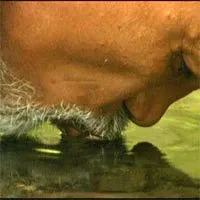Restoring the Mauri of Lake Omapere
Written by

Restoring the Mauri of Lake Omapere has its television premiere on Maori Television on Wednesday March 19 at 8.30pm.
The feature documentary examines the issues surrounding the toxic pollution of the largest body of fresh water in Northland and the devastating effects on downstream communities.
In pre-colonial times, Lake Omapere, " the kai basket of Ngapuhi", fed thousands of people. The documentary makers, Maori and Pakeha, of the Maringi Noa o te Manawa Trust, recorded statements from the surviving population of this devastated area, including a centuries old warning from tribal elders which was ignored by the settler government.
Listen to the people tell their own story, look at what is happening before our eyes, and make up your own mind about what needs to be done.Restoring the Mauri of Lake Omapere has its television premiere on Maori Television on Wednesday March 19 at 8.30pm.
The feature documentary examines the issues surrounding the toxic pollution of the largest body of fresh water in Northland and the devastating effects on downstream communities.
In pre-colonial times, Lake Omapere, " the kai basket of Ngapuhi", fed thousands of people. The documentary makers, Maori and Pakeha, of the Maringi Noa o te Manawa Trust, recorded statements from the surviving population of this devastated area, including a centuries old warning from tribal elders which was ignored by the settler government.
Listen to the people tell their own story, look at what is happening before our eyes, and make up your own mind about what needs to be done.The documentary, produced by the Hokianga-based Maringi Noa O Te Manawa Trust, was originally commissioned as a 56 minute documentary by the Maori Television Service, who supported extending the commission to 78 minutes after a work-in-progress presentation by the producers.
Restoring the Mauri of Lake Omapere is the story of the Hokianga region - birthplace of Aotearoa, but it could be the story of hundreds of New Zealand lakes, rivers, streams, harbours, and the people who depend on those waterways for their sense of identity, wellbeing and sustenance.
Nearly three years in the making, this feature length documentary addresses a serious environmental problem, and questions whether or not the Crown has a responsibility to Ngapuhi and to all New Zealanders that has not, to date, been acknowledged.
A small team began development in April 2005, leading to a commission by the Oral History Archive to record interviews. Preliminary filming was carried out between May and August, prior to the initial MTS commission.
Working with the community under the guidance of local Kuia and Kaumatua, the Maringi Noa O Te Manawa Trust has filmed over 70 hours of interviews and visual material in order to outline the significance of the Ngapuhi-owned lake, traditionally believed to signify the health of the Iwi, examine the impact of water degradation on local communities, and explore solutions for the Lake's restoration.
Primarily, the film documents a grassroots response by locals to the issue. The documentary also incorporates archival photographs, newspaper articles, and archival footage from TVNZ and the Natural History Unit.
The original soundtrack has been scored by Hokianga-based music collective, Big Belly Women. The soundtrack features the work of superb Maori and Polynesian musicians from the Big Belly Woman collective using a mix of traditional and contemporary instruments.
After a successful 'work in progress' screening at the Hokianga Film Festival in June 2007, Restoring the Mauri of Lake Omapere toured NZ with the DOCNZ festival in September, 2007.
Restoring the Mauri of Lake Omapere
78 minute indigenous environmental documentary
Produced by the Maringi Noa O Te Manawa Trust
Commissioned by the Maori Television Service
Funded by Te Mangai Paho
Directed by Simon Marler
Produced by Simon Marler, Mairi Gunn and Karen Browne
Executive Producer: Karen Browne
Director of Photography: Mairi Gunn
Location Sound Recording: Murray Nathan
Editors: Mike McCree and Samuel Grace
Computer Graphics & effects: Murray Nathan, Sam Grace & Elena Doyle
Co-ordinating Researcher: Jaqueline Dollard
Production Assistance: Karyn Bush, Dionne Kuka
Transcription: Yvonne Browne
Te Reo & Tikanga Consultants: Irene & Buster Hancy
Original Music: Big Belly Woman
Sound mix: Dick Reade, Reade Audio
Narration: Pete Smith
What Reviewers have said about the Film
"A powerful and sobering film about the utter degradation of one of the jewels of Ngapuhi."
Barry Barclay - Onfilm Magazine
"A beautiful New Zealand-made film - one of those films which makes you proud to work in documentary NZ."
Graeme Tuckett, Film Reviewer, National Radio
"Simon Marler's remarkable film is about the history and future of a lake in Northland, which is also the lifeblood of a people."
International Freshwater Sciences Conference 2007
"This is a poignant and incredibly timely film that will reward anyone who makes the effort to see it."
Graeme Tuckett, Dominion Post
Chosen by the Dominion Post's Film Reviewer as one of the top 10 movies of 2007.
16/03/08